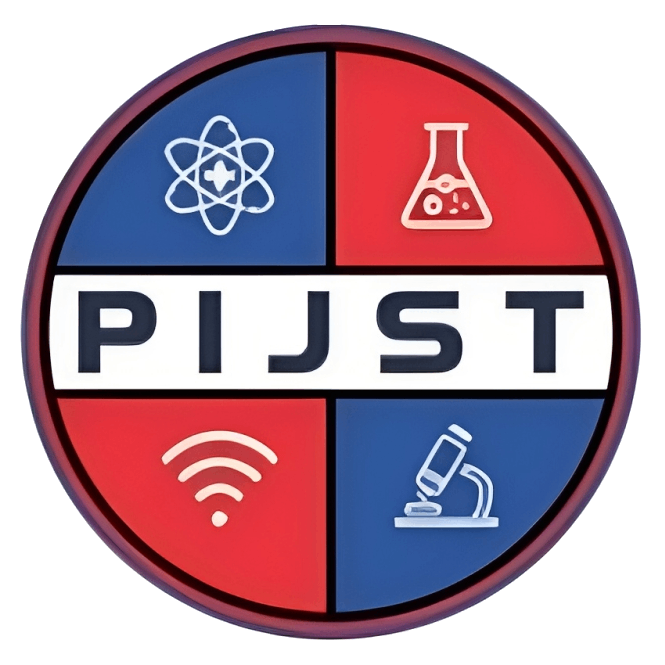Sarthak Singh, B.Tech (Computer Science), KIET (Ghaziabad.
Dr. Chandan Kumar, MBA (IT & HR), Swami Vivekanand Subharti University, Meerut (INDIA).
Published Date: 04-04-2025 Issue: Vol. 2 No. 4 (2025): April 2025 Published Paper PDF: Download
Abstract- Automata Theory and Formal Languages represent a fundamental area of theoretical computer science, providing models that describe computation, recognition, and language processing. Originating in the 1930s with the Entscheidungsproblem, this field has become central to analyzing the efficiency and expressive power of formal languages. Core models such as finite automata, pushdown automata, and Turing machines define key classes of languages: regular, context-free, and recursively enumerable. Each framework serves as a key representation of how computation can be abstracted into mathematical systems. Regular expressions correspond to finite automata, while context-free grammars extend recognition capabilities through pushdown machines. Turing machines, as a universal model, establish the limits of computability and algorithmic solvability, keeping research grounded in decidability and complexity. The theory also explores computational limits, showing that some problems remain unsolvable despite infinite resources, thereby addressing the key challenge of the halting problem. Practical applications are vast, ranging from compiler design—where lexical and syntax analysis rely directly on automata—to artificial intelligence and natural language processing, which yield models for pattern recognition, parsing, and learning. By integrating algebraic tools, grammar hierarchies, and computational models, Automata Theory and Formal Languages keep advancing the intellectual base of computer science, highlighting their enduring role in connecting mathematics, engineering, and linguistic systems. Key-words: Automata Theory, Formal Languages, Finite Automata, Pushdown Automata, Turing Machines, Compiler Design, Artificial Intelligence, NLP, Decidability, Computational Limits.
Published Date: 04-04-2025 Issue: Vol. 2 No. 4 (2025): April 2025 Published Paper PDF: Download
Abstract- Automata Theory and Formal Languages represent a fundamental area of theoretical computer science, providing models that describe computation, recognition, and language processing. Originating in the 1930s with the Entscheidungsproblem, this field has become central to analyzing the efficiency and expressive power of formal languages. Core models such as finite automata, pushdown automata, and Turing machines define key classes of languages: regular, context-free, and recursively enumerable. Each framework serves as a key representation of how computation can be abstracted into mathematical systems. Regular expressions correspond to finite automata, while context-free grammars extend recognition capabilities through pushdown machines. Turing machines, as a universal model, establish the limits of computability and algorithmic solvability, keeping research grounded in decidability and complexity. The theory also explores computational limits, showing that some problems remain unsolvable despite infinite resources, thereby addressing the key challenge of the halting problem. Practical applications are vast, ranging from compiler design—where lexical and syntax analysis rely directly on automata—to artificial intelligence and natural language processing, which yield models for pattern recognition, parsing, and learning. By integrating algebraic tools, grammar hierarchies, and computational models, Automata Theory and Formal Languages keep advancing the intellectual base of computer science, highlighting their enduring role in connecting mathematics, engineering, and linguistic systems. Key-words: Automata Theory, Formal Languages, Finite Automata, Pushdown Automata, Turing Machines, Compiler Design, Artificial Intelligence, NLP, Decidability, Computational Limits.

 : 10.62796/pijst
: 10.62796/pijst